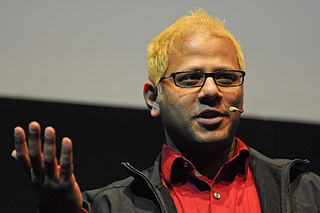A Quote by Trevor Paglen
Digital surveillance programs require concrete data centres; intelligence agencies are based in real buildings. Surveillance systems ultimately consist of technologies, people, and the vast network of material resources that supports them.
Related Quotes
The combination of the growth of these digital technologies, the ability of the government to conjure up these secret interpretations, plus a very unusual and novel court make for this ever-expanding surveillance state. We so treasure our freedoms; we will regret it if our generation doesn't use this unique time to reform the surveillance laws and make it clear that security and liberty are not mutually exclusive. We can do both.
If even one country, an Iceland for example, defects from this global legislative bargain and says no, we're not going to enforcement mass surveillance here. We're not going to do that. That's where all of the data centres, all the service providers in the world will relocate to. And I think that gives us a real chance to see a more liberal than authoritarian future.
When we have some horrible terrorist attacks happen in some country we see in the recording that follows, that the intelligence community already knew about these people in advance. We know that these countries were involved in intelligence sharing premiums, that they benefited from mass surveillance, and yet they didn't stop the attacks. Yet at the same time we immediately see intelligence officials running to the newspapers and claiming that we need more surveillance, that we need more intrusion, that we need more expense of powers because it could have stopped an attack.
Before Sept. 11, the idea that Americans would voluntarily agree to live their lives under the gaze of a network of biometric surveillance cameras, peering at them in government buildings, shopping malls, subways and stadiums, would have seemed unthinkable, a dystopian fantasy of a society that had surrendered privacy and anonymity.
When I was working in Japan, I created a system for ensuring that intelligence data was globally recoverable in the event of a disaster. I was not aware of the scope of mass surveillance. I came across some legal questions when I was creating it. My superiors pushed back and were like, "Well, how are we going to deal with this data?" And I was like, "I didn't even know it existed."




































